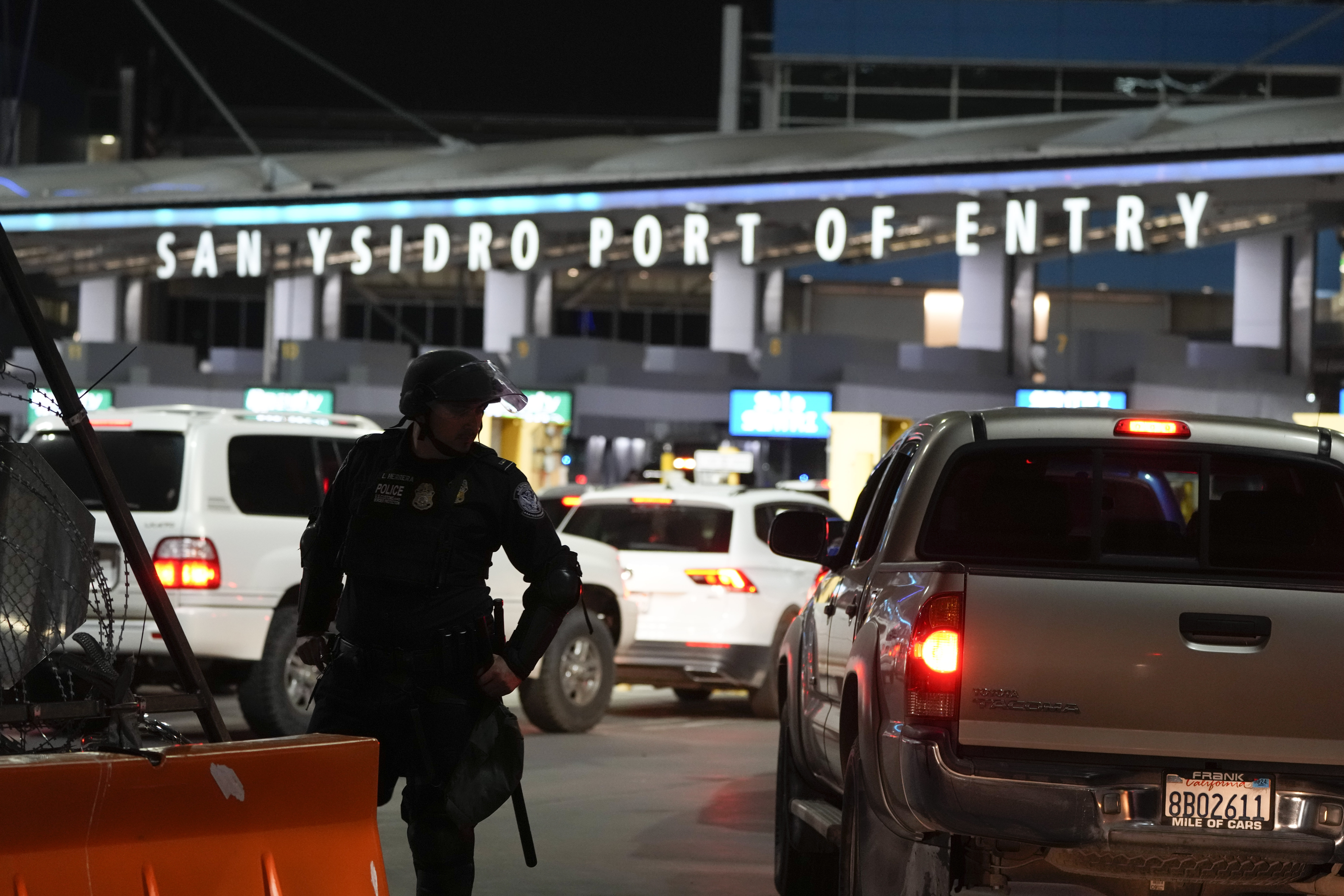Florida judge hands Biden another immigration rejection
The same judge earlier mulled holding the Biden administration in contempt over immigration policy.


TALLAHASSEE, Fla. — The Biden administration remains unable to carry out a key piece of its immigration agenda at the southern border after a Florida judge on Monday night denied the federal government’s attempt to proceed with the policies as a simmering legal battle unfolds.
U.S. District Court Judge T. Kent Wetherell kept his ruling against the Department of Homeland Security and other federal immigration officials intact, rejecting a request to put it on hold while the Biden administration pursues an appeal in the case brought by the DeSantis administration.
At stake is a Biden administration policy that allows the government to release some asylum seekers into the U.S. on a “parole” basis with limited supervision.
In denying the stay sought by the federal government over the restraining order Wetherell put into place Thursday, the Trump-appointed judge cited recent statements from Homeland Security Secretary Alejandro Mayorkas claiming that the number of migrants at the US southern border “are markedly down over what they were prior to the end of Title 42.”
“If the sky did not fall then, the Court has no reason to believe that the sky will fall now,” Wetherell wrote.
The Monday evening court order capped off a lengthy day of filings in the Pensacola federal court, where Florida’s immigration fight with the Biden administration has ramped up since last week.
There are likely to be additional procedural motions in anticipation of an appeal by the Biden administration, as Wetherell indicated another ruling was coming “in the next day or so.”
Wetherell issued an order Thursday barring the Biden administration from enforcing a key aspect of the policies it planned to put into effect in the aftermath of the end of Title 42, the health-related limits on asylum seekers imposed after the outbreak of the Covid-19 pandemic in 2020.
The policy Wetherell blocked last week set rules for parole of migrants into the U.S., especially those not yet put into formal deportation proceedings or given immigration court dates.
After a weekend of back-and-forth between Florida and the feds, Wetherell on Monday morning ordered federal government lawyers to explain why DHS officials should not be held in contempt of court over the reported release of some 2,500 migrants into the country, which allegedly took place after the restraining order was issued.
“The Court takes allegations of noncompliance with its orders very seriously, irrespective of the source of the allegations,” wrote Wetherell, an appointee of former President Donald Trump.
In a two-page order Monday morning, Wetherell gave the Justice Department until 3 p.m. Eastern Time to “show cause” against a possible contempt finding.
In a Monday afternoon response, attorneys for the Biden administration claimed that federal officials are following the court order, yet acknowledged that some 167 people may have been processed with parole in what could be “possible noncompliance.”
The federal government’s “review of U.S. Custom and Border Protection systems has identified some data indicating possible noncompliance with respect to a relatively small number of individuals,” DOJ attorneys representing the Biden administration wrote in the response. “Defendants are investigating that issue and will report back to the Court promptly.”
The Biden administration “took immediate steps” to comply with the court’s order and “those instructions generally were followed,” according to its legal team.
And yet authorities determined that the 167 migrants may have been paroled after Wetherell’s order went into effect. As such, DOJ is asking for two days to review the cases and update the court while also pushing back on the media report that spurred the contempt questions by claiming hundreds of migrants were released at the border.
“Because the Washington Times article cites an anonymous source for its numbers, [the Biden administration] cannot assess where those numbers came from or how they were generated,” federal attorneys wrote.
In March, also acting on a lawsuit brought by the State of Florida, Wetherell issued a similar order blocking an “Alternatives to Detention” plan the Biden administration rolled out to provide remote supervision for asylum-seekers and others in deportation proceedings that can often stretch out for years.
Wetherell and the federal government have sparred repeatedly in the cases. Last week, White House press secretary Karine Jean-Pierre said the judge’s orders amounted to “sabotage” of the Biden administration’s border policies.
In an order Wetherell issued Saturday denying a stay of his March directive, the judge called that request “borderline frivolous” and he complained about what he called the Justice Department’s “threat” to seek emergency relief from a federal appeals court today if he did not act by today.
“Defendants do not get to dictate when the Court rules. The Court understands that it needs to rule quickly (and it will do so, as it has done with every other filing in these cases), but these cases are not death penalty cases that require 24/7 attention or immediate rulings,” the judge wrote, indicating that he did not plan to spend Mother’s Day Sunday dealing with the issue.
Asked about the latest order from the judge, a Customs and Border Patrol spokesperson pointed to this statement about Wetherell’s order last week and said a further statement is forthcoming.
“CBP will comply with the court order and is assessing next steps,” the earlier statement said.
“This is a harmful ruling that will result in unsafe overcrowding at CBP facilities and undercut our ability to efficiently process and remove migrants, and risks creating dangerous conditions for Border Patrol agents and migrants. The fact remains that when overcrowding has occurred in Border Patrol facilities, Republican and Democratic Administrations alike have used this parole authority to protect the safety and security of migrants and the workforce.”












